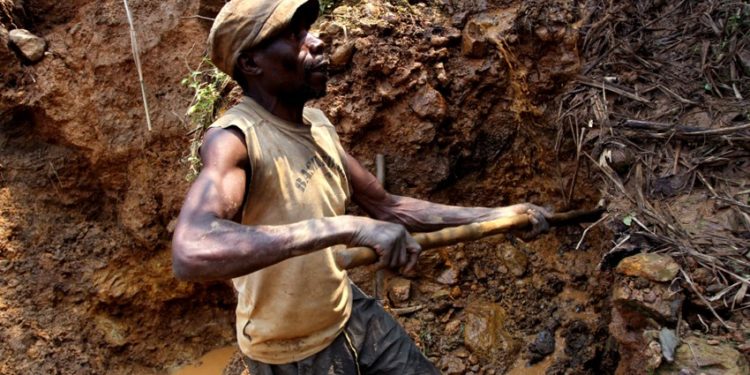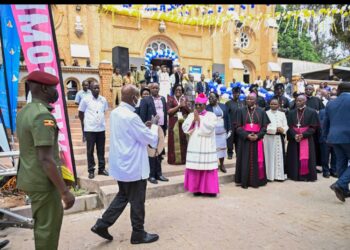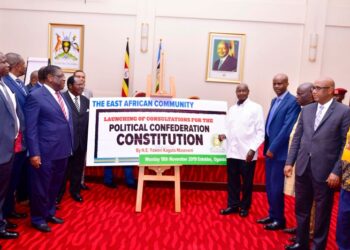From advances in technology and medicine to paradigm shifts in livelihood systems, the past 50 or so years have seen tremendous changes occur in people’s standards of living all over the world. On average, people’s lives have improved on every continent. Except for Africa!
While Africa is often regarded as the most beautiful and richest continent, it is, at the same time, the poorest land on earth and is the only large, contiguous region left out of the worldwide rise in prosperity – with more than a quarter of the hungry in the world living on the African continent.
Why is that? Is Africa really cursed? Obviously, there are myriad of issues surrounding this question. In last week’s article, titled: “Is Africa really cursed? – Part I”, I ventured into a number of potential causes for Africa’s problems and the focus was on widespread corruption, gross abuse of public resources, bad leadership and political instabilities.
In today’s discussion, I will focus on these two underlying factors: (1) Scriptures and biblical interpretations, and (2) poverty and the mindset factor.
Scriptures and biblical interpretations
Were Africans or black people born to be slaves?
In his book, The Curse of Ham, David Goldenberg notes that there’s a myth derived from the book of Genesis in the Bible that the black race came from the lineage of Noah’s cursed son, Ham (in particular Canaan, one of his four sons), who was cursed by his drunken father.
In the scriptures, Noah said, “Cursed be Canaan! The lowest of slaves will he be to his brothers.” He then blesses Shem and Japheth (who were the two other sons of Noah), declaring, “Blessed be the LORD of Shem! May Canaan be the slave of Shem. May God extend the territory of Japheth. . . and may Canaan be his slave” (Gen. 9:25-27).
Although there is no biblical evidence that Ham was the “father” of African people, various Jewish, Christian and Islamic writers came to believe that he was, and this belief, in many ways, helped establish a firm connection between Ham, Africa, slavery and race.
For thousands of years, this biblical story has been used as the single-greatest justification for Black segregation. This story was/is frequently cited by many White people to argue that the slavery of the black race was, in fact, a fulfilment of the prophecy. They argued that 1) the word “Ham” means “black” and thus refers to the Black race; and 2) God commanded that the descendants of Ham (Black people) become slaves to Japheth, who, they argue(d), represents the White race.
Some observers also argue that the misinterpretation and misapplication of this particular bible story was one of the roots of the deadly tribalism that destroyed lives of more than 800,000 people in Rwanda. The story became the justification for giving privileged status to one indigenous group over another.
Away from the so-called ‘curse of Ham’, there are several other holy scriptures often quoted (and misquoted) by those in support of this miserable subject, including church leaders and other Christians. One of those came from the Apostle Paul’s Epistle to the Ephesians 6:5-8 that states, “Slaves, be obedient to your human masters with fear and trembling, in sincerity of heart, as to Christ”.
In reference to those two scriptures above, the other parts of the Bible have been largely ignored and the promoters often point out that nowhere in the Bible did Jesus condemn slavery. It was/is also generally accepted that the Latin word servus, usually translated as servant, really meant slave.
Poverty and the mindset factor
It is ironic that, in terms of natural resources, Africa is arguably the richest continent on earth yet the majority of its population lives on the margins of society. For instance, with over $24 trillion in mineral deposits, the Democratic Republic of Congo (DRC) is ranked among the top 10 Countries in the world with the most natural resources. But in a rather bizarre contrast, DRC is also ranked in the top 10 list of poorest countries in the world.
Today, poverty can be singled out as Africa’s biggest problem and it is even deeper than our broken political systems. The Poverty levels have been exacerbated by the Covid-19 pandemic and it is estimated that nearly 50 million people in sub-Saharan Africa could be pushed into extreme poverty.
When people imagine poverty in Africa, they tend to think of it in terms of lack of means or resources, but that is not true. The real issue resides in our ‘Mindset’ – you may also call it ‘poverty of the mind’ – of its leaders and citizens. African People are mainly driven by dependence on government and foreign aid, instead of critical thinking, hard-work, determination and a sense of responsibility towards self & country.
Whereas Africa is estimated to receive over $140 billion in foreign aid and donations each year, there’s overwhelming evidence to demonstrate that this aid has instead made the poor poorer, and the economic growth slower. Also, some $220 billion is extracted from the continent in the form of debt repayments, multinational company profits, and illicit financial flows. In other words, Africa suffers a net loss of more than $80 billion every year.
Dambisa Moyo, a global economist and author, contends in her book, Dead Aid, that while foreign aid that addresses humanitarian needs caused by drought and conflict is helpful, most of the aid given to African countries is rather harmful. Moyo lists the problems enhanced by aid to include corruption, civil conflict, shrinking of the middle class, and the instilling of a culture of dependency.
And even the would-be good poverty alleviation projects do not necessarily empower the people because they are usually compromised by the government and other officials in charge. These projects often turn out to be short-lived programmes that mainly benefit the government officials or a limited number of the people concerned.
If Africa is to make any meaningful progress, the mentality of looking for solutions to come from elsewhere and blaming outsiders for our poverty and misfortunes must stop. The unwillingness to take action, and the deep-seated mindset problem pose some of the biggest mysteries, obstacles and threats to development in Africa.
To be continued…
Mr. Mukalazi is the Country Director of
Every Child Ministries Uganda.
bmukalazi@ecmafrica.org
Do you have a story in your community or an opinion to share with us: Email us at editorial@watchdoguganda.com













